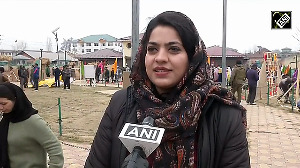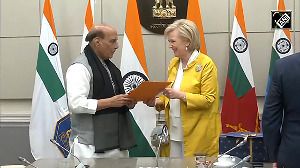Online banking is spreading beyond the metros. The latest survey by Internet and Mobile Association of India reveals that while 35 per cent of respondents used online banking, over 26 per cent of online banking activities occur in prominent tier-II cities and towns.
The survey, conducted on 6,365 respondents across India, reveals that Internet has emerged as the second most important banking channel.
While 53 per cent of respondents preferred using ATMs as a banking channel, 23 per cent preferred the Internet for this purpose. Mobile banking, at 2 per cent, is the least preferred, while the takers for phone banking is marginally higher at 4 per cent. Eighteen per cent of the respondents still preferred the good old branch network.
While 86 per cent of online banking users owned ATM cards and 65 per cent owned credit cards, only 31 per cent of them used their credit cards online.
This reflects that trust for the online medium is growing even though security is still the biggest reason for non-converts preferring to stay away.
Beyond checking their balances, the survey indicates that 53 per cent of online users actually ordered their cheque books online. Twenty-four per cent preferred cheque reconciliation and tracking on their bank website.
Twenty-one per cent online users used their bank website to stop cheque payments while 14 per cent even ordered deposit slips online.
The survey reveals that 57 per cent of respondents used online banking services for one bank account while 38 per cent used online banking services for 2-3 bank accounts, indicating that one particular primary bank account gets most attention.
Beyond the top five cities in the country, Pune accounts for 3.3 per cent users, Hyderabad for 2.6 per cent, while Kanpur, Lucknow and Ahmedabad with 1.6 per cent each are all part of the next top 10.
Patna follows at 1.1 per cent, Jaipur at 1 per cent and Cochin, Indore, Bhopal, Guwahati, Vadodara and Chandigarh account for more than 0.5 per cent each.Do you want to discuss stock tips? Do you know a hot one? Join the Stock Market Investments Discussion Group






 © 2025
© 2025